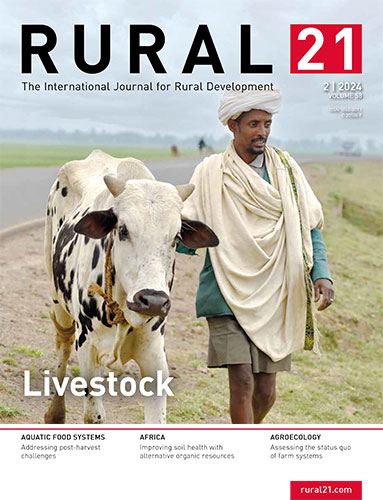- Share this article
- Subscribe to our newsletter
Why we should care about securing women’s land rights
The answer, why secure land rights are so important, are threefold, as extensive research has shown:
Less poverty, less vulnerability First, secure land rights reduce poverty and vulnerability. Having rights to land reduces the chance a family will fall into poverty because secure land often means a secure food source. It is also an important form of collateral. It is important for a woman to have her own land rights just in case her marriage dissolves, whether through divorce or widowhood. In many societies, women’s land rights are derived through their male relatives, whether through their fathers or husbands. A husband’s death or divorce often results in a woman’s loss of access to land, leaving her and her children vulnerable.
First, secure land rights reduce poverty and vulnerability. Having rights to land reduces the chance a family will fall into poverty because secure land often means a secure food source. It is also an important form of collateral. It is important for a woman to have her own land rights just in case her marriage dissolves, whether through divorce or widowhood. In many societies, women’s land rights are derived through their male relatives, whether through their fathers or husbands. A husband’s death or divorce often results in a woman’s loss of access to land, leaving her and her children vulnerable.
During the 2007–2008 global food price crisis, women household heads in Ethiopia reported more than men that their assets, household income, and consumption had fallen due to high food prices. Because female-headed households are also poorer and cannot meet their families’ food needs for a greater number of months than male heads, they coped by cutting back on the number of meals they provided their households during good months and by eating food that they would normally not eat, such as food gathered in the wild.
We also found that households who owned larger amounts of land, as well as more high-quality land, were more protected against high food prices. Strengthening women’s ability to own and control land, particularly land of high quality, would therefore be key to protect the rural poor from food price shocks.
Incentive for sustainable management
Second, secure land rights also increase women’s incentives to manage that land more sustainably by planting trees and adopting more sustainable farming techniques. IFPRI’s work in Ghana showed that women were more likely to plant cocoa trees on land on which they had secure, private property rights. When women were less secure about their land rights, long-term practices like tree planting fell by the wayside and they shortened crop rotations to boost short-term production, leaving less time for the land to lay fallow and regain its fertility. In Ethiopia, the community-based land registration strengthened women’s land rights. We found that households with more registered land were more likely to plant trees, and that trees were more likely to be planted on women-managed plots with more secure rights.
Improved bargaining power with intergenerational impacts
Third, secure land rights improve women’s bargaining power within the household. This matters because, in many parts of the world, men and women spend money differently. Women are more likely to spend the income they control on food, health care, and education of their children, increasing investments in the next generation and contributing to overall poverty reduction. These intergenerational impacts are important.
IFPRI analysed the impact of recent changes in Ethiopia’s family law, which gave women stronger rights to property upon divorce, and found that women who perceive that their husband would get all the assets in case of a divorce feel they have less control over their lives. Children in households where women perceive they will get less in a divorce settlement also do less well in school relative to children of the same age; girls fare even worse than boys in these households.
In Bangladesh, agricultural development programmes that targeted women were able to reduce the gap between women and men in asset ownership, improve women’s nutritional status, and reduce stunting rates of girls.
Policymakers and development practitioners are starting to take heed: a number of governments in Africa south of the Sahara have passed laws to give women more secure rights to land. Some states in India, for example, have begun issuing land certificates with both husbands’ and wives’ names. A number of civil society organisations have increased campaigns for legal literacy, working through community-based legal aid workers, to provide people much-needed education about their rights and how to stand up for them. Progress has been made, but it is slow, not nearly enough. So back to the question at hand: Why should we care about securing women’s land rights? The answer is actually very simple: Because the future depends on it.
About the author: Agnes Quisumbing is an economist who leads a global research programme on gender and assets at the International Food Policy Research Institute. She previously led a multi-country research programme that examined how differences in bargaining power within households affect individual and household wellbeing, among other issues. She has worked on gender and land issues in Bangladesh, Ethiopia, Ghana, Indonesia and her native Philippines.
Contact: Agnes Quisumbing
IFPRI – International Food Policy Research Institute
Washington, D.C., USA
a.quisumbing(at)cgiar.org




Add a comment
Be the First to Comment